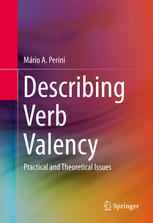

Most ebook files are in PDF format, so you can easily read them using various software such as Foxit Reader or directly on the Google Chrome browser.
Some ebook files are released by publishers in other formats such as .awz, .mobi, .epub, .fb2, etc. You may need to install specific software to read these formats on mobile/PC, such as Calibre.
Please read the tutorial at this link: https://ebookbell.com/faq
We offer FREE conversion to the popular formats you request; however, this may take some time. Therefore, right after payment, please email us, and we will try to provide the service as quickly as possible.
For some exceptional file formats or broken links (if any), please refrain from opening any disputes. Instead, email us first, and we will try to assist within a maximum of 6 hours.
EbookBell Team

4.3
38 reviewsThe elaboration of linguistic theories depends on the existence of adequate descriptions of particular languages; otherwise theories will be poorly grounded on empirical data. This book starts from theoretical points of wide acceptance among linguists and goes on to present a descriptive metalanguage, able to express the facts of verb valency, which constitute one of the core areas in linguistic description. Most of the data come from an extensive survey under way of the valency of Portuguese verbs; but the present work’s relevance goes well beyond that, and incorporates a proposal applicable to other European languages, illustrated by the wealth of English examples included in the exposition. Among the topics discussed are the syntactic component of constructions (following here a proposal recently published in Culicover and Jackendoff’s Simpler Syntax); delimitation and definition of semantic roles; the role of linking rules and their relation to prototypes; and the connection between linguistic expressions and cognitive units such as frames and schemata. The result is a notational system flexible and robust enough to describe all aspects of verb valency.